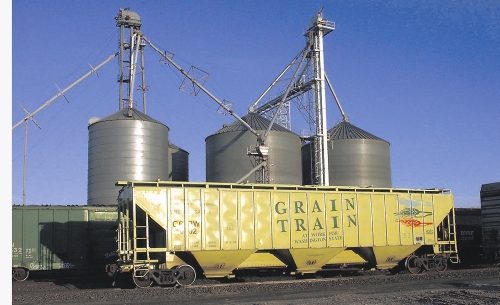forum
library
tutorial
contact

CEQ Release of Pacific Northwest Reports
Attracts Criticism
by The Hagstrom Report
The Fence Post, July 14, 2022
|
the film forum library tutorial contact |

|
CEQ Release of Pacific Northwest Reports
by The Hagstrom Report
|
The Biden administration is talking a big game on carbon goals while simultaneously
engaging in actions to undermine valuable clean power resources on the Columbia River System.
 The White House Council on Environmental Quality this week released two reports with proposals that the Biden administration said would restore salmon and steelhead populations in the Columbia River Basin and meet state and federal clean energy goals.
The White House Council on Environmental Quality this week released two reports with proposals that the Biden administration said would restore salmon and steelhead populations in the Columbia River Basin and meet state and federal clean energy goals.
The White House noted that the reports include "1) a draft assessment of the state of the science and large-scale actions to make progress toward healthy and harvestable abundances of key fish stocks in the basin; and 2) an assessment of power production portfolios that could offset the potential loss of electric generation from four federal dams on the Lower Snake River, if Congress were to pursue a new long-term strategy for the management of the Columbia River hydropower system."
"Business as usual will not restore the health and abundance of Pacific Northwest salmon. We need a durable, inclusive, and regionally crafted long-term strategy for the management of the Columbia River Basin," said CEQ Chair Brenda Mallory, who is coordinating a federal interagency effort, launched in October 2021, to develop information and analyses in support of federal and regional decision-making in the Columbia River System. "These two reports add to the picture -- that we are working alongside regional leaders to develop -- of what it will take over the decades ahead to restore salmon populations, honor our commitments to Tribal Nations, deliver clean power, and meet the many needs of stakeholders across the region."
The National Association of Wheat Growers noted that the Biden administration has not endorsed the proposals, but that CEQ had failed "to mention the transportation, navigation, and energy benefits of the river system and the negative impacts dam breaching would have throughout the agricultural industry and rural communities."
"As a wheat farmer in the Pacific Northwest, growers from across the region benefit from barging as an efficient and affordable way to get our wheat to buyers worldwide," said NAWG President and Washington state wheat grower Nicole Berg. "The idea of breaching the dams on the Lower Snake River would have a devastating economic impact on the livelihood of wheat growers beyond the PNW. The Columbia Snake River System is critical infrastructure system that enables reliable wheat transportation to more than 20 countries throughout the Pacific Rim. NAWG has serious concerns about these reports and encourages the administration to engage with the agricultural industry, because breaching these dams will adversely impact wheat growers who are already facing economic pressures from inflation and lingering supply chain issues."
Republican representatives from Washington, Oregon, Idaho and Montana also released a joint statement criticizing the reports.
"Today's release of two reports from the Biden administration's Council on Environmental Quality confirms what we have suspected for some time -- they are cherry-picking points to justify breaching the Lower Snake River dams, which will permanently and negatively impact our way of life in the Pacific Northwest," Reps. Dan Newhouse, Cathy McMorris Rodgers and Jaime Herrera Butler of Washington state, Cliff Bentz of Oregon, Russ Fulcher of Idaho and Matt Rosendale of Montana said.
They continued, "The Biden administration just last month issued a Declaration of Emergency stating that a current emergency exists 'with respect to the threats of the availability of sufficient electricity generation capacity to meet expected customer demand.' Today, with the release of these draft reports, one thing is clear: The Biden administration is talking a big game on carbon goals while simultaneously engaging in actions to undermine valuable clean, affordable, and renewable power resources on the Columbia River System, thus compromising energy stability across the region.
"As the members of Congress representing the range of stakeholders engaged in recovering endangered salmon and preserving the Columbia River power system, we must point out the reality that the draft report by NOAA, FWS, Nez Perce Tribe, and state of Oregon fails to acknowledge that salmon returns on the Lower Snake River have shown encouraging gains since 2019. In fact, this year, Spring Chinook returns are more than double last year and 31% above the 10-year average. We urge this administration to consider the facts, prioritize transparency, and utilize sound science and input from all tribes, industry groups, and the ratepayers themselves before coming to an outcome in any final report that would be catastrophic to the communities we represent."
learn more on topics covered in the film
see the video
read the script
learn the songs
discussion forum
